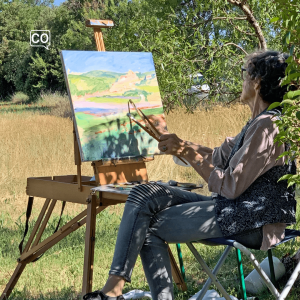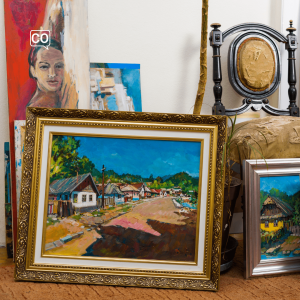Describiendo aficiones

Learning goals:
- Habla sobre tus pasatiempos (Talk about your hobbies)
- Describe actividades que disfrutas (Describe activities that you enjoy)
- Planes de fin de semana en ciudades españolas (Weekend plans in Spanish cities)
- Adverbios de tiempo (Time adverbs)
- Planes de fin de semana en ciudades españolas (Weekend plans in Spanish cities)
Learning module 6 (A1): La ciudad y el pueblo (The city and the village)
Recap exercises of the previous lesson
Teaching guidelines +/- 60 minutes
Core vocabulary (13)
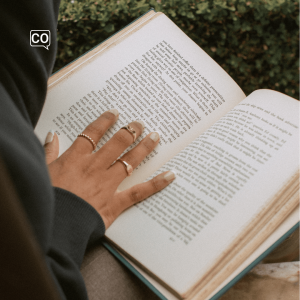
Siempre leo un libro antes de dormir.
(I always read a book before going to sleep.)
El libro
(The book)

Siempre escucho música en la biblioteca para no aburrirme.
(I always listen to music in the library to avoid getting bored.)
La música
(The music)
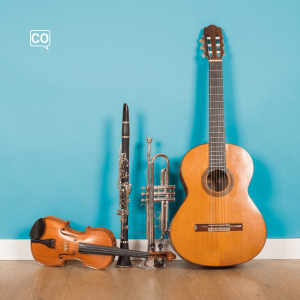
Ana, coge el instrumento que quieras.
(Ana, pick any instrument you like.)
El instrumento
(The instrument)
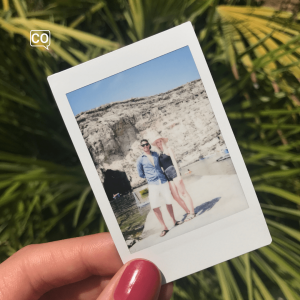
Siempre me gusta mirar la foto en mi libro de arte.
(I always like to look at the photo in my art book.)
La foto
(The photo)

A veces, me gusta ver una película en casa.
(Sometimes, I like to watch a film at home.)
La película
(The film)
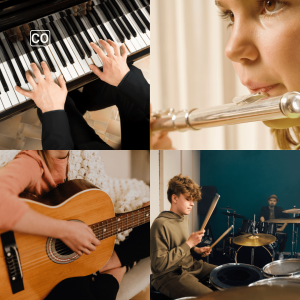
Vosotros tocáis la flauta en la comisaría.
(You play the flute at the police station.)
Tocar
(To play)
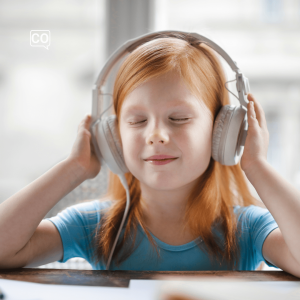
Tú escuchas la clase en la universidad.
(You listen to the lecture at the university.)
Escuchar
(To listen)
Listening materials
Our listening materials implement the verbs, vocabulary and grammar topics of this lesson. Audio and video available!
A1.41.1 Gramática: Adverbios de tiempo
Spanish A1.41.1 Time adverbs
(A brief explanation of time adverbs in Spanish with grammatical rules and examples.)
Teaching guidelines +/- 15 minutes
A1.41.2 Cuento corto: Un fin de semana perfecto con amigos
Spanish A1.41.2 A perfect weekend with friends
Una historia corta en español sobre actividades de tiempo libre.
(A short story in Spanish about leisure activities.)
Teaching guidelines +/- 15 minutes
A1.41.3 Cultura: Planes de fin de semana en ciudades españolas
Spanish A1.41.3 Weekend plans in Spanish cities
Aprendemos a hablar de planes del fin de semana. Exploramos distintas ciudades españolas y distintas actividades de ocio.
(We learn to talk about weekend plans. We explore different Spanish cities and various leisure activities.)
Teaching guidelines +/- 10 minutes
Exercises
These exercises can be done together during conversation lessons or as homework.
Exercise 1: Find the words
Instruction: Find the words, mark them and make sentences with the words.
Show answers Show hintsHints
The music , The book , The instrument , To draw , The drawing , The photo
Answers
Score: 0/6
| La foto | (The photo) |
| La música | (The music) |
| Dibujar | (To draw) |
| El instrumento | (The instrument) |
| El libro | (The book) |
| El dibujo | (The drawing) |
Exercise 2: Reorder sentences
Instruction: The words in these sentences have been shuffled! Sort them so that they make a valid sentence again and translate.
Show answers Show translationExercise 3: Translate and make sentences
Instruction: Translate the words and phrases below and use it in a conversation or text.
Show answersExercise 4: Translate and use in a sentence
Instruction: Translate and say the word out loud. Use the word in a sentence.
Show translation|
1.
Pintar
|
(To paint) |
|
2.
La música
|
(The music) |
|
3.
Escuchar
|
(To listen) |
|
4.
El instrumento
|
(The instrument) |
|
5.
La película
|
(The film) |
Exercise 5: Conjugación verbal
Instruction: Choose the correct word, read the sentence out loud and translate.
Show answers Show translationEscuchar (Pretérito perfecto, indicativo), Leer (Pretérito perfecto, indicativo), Escribir (Pretérito perfecto, indicativo)
1. Yo ... un libro sobre el ciclismo.
2. Vosotras ... una historia sobre el fútbol.
3. Ellos ... un libro sobre la natación.
4. Él ... las informaciones sobre el curso de natación.
5. Vosotros ... el himno del equipo de fútbol.
Exercise 6: Time adverbs
Instruction: Choose the correct word, read the sentence out loud and translate.
Show answers Show translationTodavía, Ahora, Antes, Temprano, Hoy, Ya, Tarde, Después
1. ..., en este momento, toco un instrumento en el jardín.
2. ... de salir, dibujo algo.
3. ... he leído sobre la música.
4. ... no he pintado nada hoy.
5. ... de sacar las fotos, me voy a casa.
6. ... por la mañana escucho música.
7. ... por la noche veo una película.
8. ... no he dibujado nada. A lo mejor dibujo algo mañana.
Exercise 7: Translate and make sentences
Instruction: Translate the words and phrases below and use it in a conversation or text.
Show answersConversation exercise
Teaching guidelines +/- 10 minutes
- Describe el hobby en cada imagen. (Describe the hobby in each picture.)
- Cuenta cuál es tu actividad favorita. (Tell what is your favorite activity.)
Example phrases:
- La persona canta. (The person one sings.)
- ...
Appendix 1: Extended vocabulary table
Core vocabulary
(13):
Verbs: 6,
Nouns: 7,
Context vocabulary:
6
| Spanish | English |
|---|---|
| Cuadros | Paintings |
| Dibujar | To draw |
| El cuadro | The painting |
| El dibujo | The drawing |
| El instrumento | The instrument |
| El libro | The book |
| Escuchan | They listen |
| Escuchar | Listen to |
| La foto | The photo |
| La música | The music |
| La película | The film |
| Leen | They read |
| Leer | To read |
| Museo | Museum |
| Pintan | They paint |
| Pintar | To paint |
| Sacan | They take |
| Sacar | To take |
| Tocar | To play |
Appendix 2: Verb conjugation tables for this lesson
Escribir (to write)
Exercises and examples phrases
- yo he escrito I have written
- tú has escrito You have written
- él/ella ha escrito He has written
- nosotros/nosotras hemos escrito We have written
- vosotros/vosotras habéis escrito You have written
- ellos/ellas han escrito They have written
Leer (to read)
Exercises and examples phrases
- yo he leído I have read
- tú has leído You have read
- él/ella ha leído He has read
- nosotros/nosotras hemos leído We have read
- vosotros/vosotras habéis leído you have read
- ellos/ellas han leído They have read
Escuchar (to listen)
Exercises and examples phrases
- yo he escuchado I have listened
- tú has escuchado You have listened
- él/ella ha escuchado he has listened
- nosotros/nosotras hemos escuchado We have listened
- vosotros/vosotras habéis escuchado You have listened
- ellos/ellas han escuchado They have listened
Exercise: Verb conjugation
Instruction: Choose the correct word, read the sentence out loud and translate.
Show answers Show translationLeer (Pretérito perfecto, indicativo), Escuchar (Pretérito perfecto, indicativo), Escribir (Pretérito perfecto, indicativo)
1. Yo ... vuestra conversación.
2. Ellos ... los consejos sobre el atletismo.
3. Tú ... las instrucciones del entrenador.
4. Vosotros ... el himno del equipo de fútbol.
5. Él ... las informaciones sobre el curso de natación.

